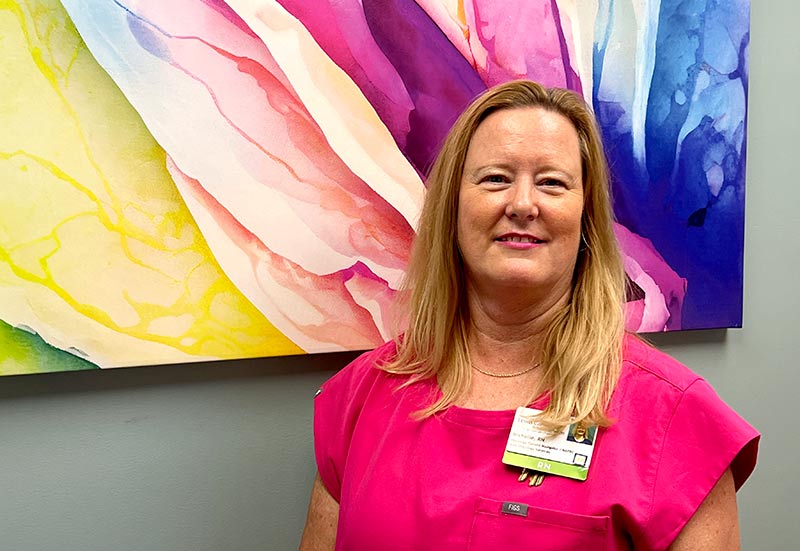
Cancer
What are nurse navigators?
At the Nancy N. and J.C. Lewis Cancer & Research Pavilion, a team of navigators help you on your cancer journey
Your cancer journey can at times be confusing and scary. The good news is you don’t have to face it alone.
In addition to the most experienced physicians and the latest technology, the Nancy N. and J.C. Lewis Cancer & Research Pavilion offers patients nurse navigators. Nurse navigators are registered nurses that help patients through the process of their cancer diagnosis and treatment.
“We are here as patient advocates,” says Michelle Beasley, breast cancer oncology patient navigator with the LCRP and Telfair Breast Surgery. “We are here to help guide them through the emotions of a new cancer diagnosis. We answer questions, break down information that was provided by the physician and more often a shoulder to lean on.”

Don’t recall what your doctor said at your last appointment? Call your nurse navigator.
Not sure when you’re due for your next PET-CT scan? Ask you nurse navigator.
Concerned about financial assistance or transportation? Talk to your nurse navigator.
Patient navigators are able to help patients in multiple other ways, depending on a patient’s individual needs. Navigators can help with:
- Understanding your diagnosis and treatment options
- Voice any questions or concerns with your doctors and other health care team members
- Gain access to the latest treatment information available through clinical and research trials
- Make referrals and schedule/coordinate appointments including any necessary lab work and imaging needs
- Coordinate with appropriate staff to arrange transportation when the need is identified
- Explore work-related or financial concerns that you may have and connect you to appropriate resources
- Embark on survivorship to help you live with and through a cancer diagnosis
- Ensure psychosocial needs are addressed by providing resources for supportive services
Not every single cancer patient at the LCRP sees or even needs a nurse navigator. Patients are assigned to a nurse navigator typically dependent upon their diagnosis, or as a physician, social worker or other LCRP co-worker feels a patient needs navigator assistance. Navigators are assigned when there are barriers to care identified, Beasley adds.
The nurse navigators will attend appointments with patients, regularly check-in with them, answer any questions they have and address other needs through the treatment process. Many patients and navigators stay in communication even months or years once they are cancer free.
“Patients are becoming more and more familiar with the role of the navigator,” Beasley says. “Overall, the patients are really appreciative of the help and guidance we provide for them.”
The LCRP has a team of nurse navigators that are divided up by cancer type. For example, if you are diagnosed with lung cancer, you will see the oncology nurse navigator dedicated to that cancer type. In our South Carolina offices, we also have two dedicated nurse navigators for patients there, and in Jesup, we have a dedicated patient navigator.
Additionally, we have diagnostic navigators who work with patients from imaging to diagnosis, and financial navigators who can assist you through the financial struggles that can come with a cancer diagnosis.
“We educate patients that a team approach is utilized to create a treatment plan that is unique for them,” Beasley says. “There is no expiration date on us and patients find comfort in knowing they can always make contact if needed.”
If you have more questions about any of the LCRP’s navigation services, please call us at 912-819-5704 or visit our website.
